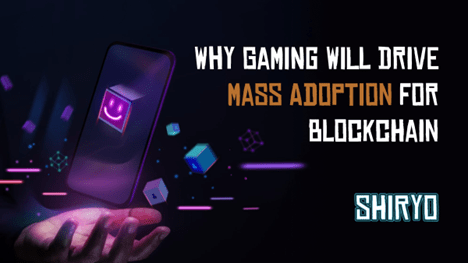It can be tricky to drive mass adoption with cutting-edge technology. Unfortunately, crypto and blockchain are no different.
Both languished in relative obscurity for years within niche communities and have only started to trend mainstream over the last few years. Calculating global crypto and blockchain adoption has proven to be a difficult task so far, but initial reports suggest both industries remain on the upswing even amid massive price downturns.
Chainalysis’s Global Crypto Adoption index revealed adoption – based on transfer values and volume – jumped 880% between Q2 2020 and Q2 2021.
Crypto.com projected in January 2022 that the number of global crypto owners would hit 1 billion by the end of the year.
In a June 2022 report, Blockware wrote worldwide Bitcoin adoption would reach 10% of the Earth’s population by 2030.
Sentiments about blockchain technology remain bullish, especially as distributed ledger technology makes headway within traditional industries. For example, Mastercard’s VP of product development and innovation asserted in May that mass adoption of crypto assets and blockchain would happen sooner than later.
Going further, Harold Bosse argued startups need to look at ideas that do not exist and craft businesses around crypto and blockchain.
How P2E Gaming Is Shaking Up Traditional Industries And The Blockchain World
Bosse’s innovation strategy is already well-known within the emerging and energetic GameFi world, where players enjoy blockchain-based games and stand to collect rewards along the way due to the Play-To-Earn (P2E) model.
Blockchain-based gaming platforms have snowballed even as crypto markets continue to fluctuate. Many gamers have long been on the hunt for an alternative to traditional gaming models that reward developers instead of users.
In contrast, a P2E model lets gamers earn rewards with real-world value, like tokens, virtual land, NFTs, and other digital assets. Many regard the P2E model as empowering, shifting value back to the users. P2E also permits gamers to move assets outside a platform’s digital world.
The model has already been life-changing for many. In some cases, Filipino workers have reportedly collected double and even triple the amount of local minimum wages while playing blockchain games. As of early August 2022, 40% of Axie Infinity’s player base stemmed from the Philippines.
DappRadar’s July industry report highlighted blockchain-based gaming. The report noted that game dApps contributed to 60% of July’s blockchain activity, an all-time high at the time of publication.
According to DappRadar research head Pedro Herrera, “with relevant gaming events like The Sandbox Alpha Season 3, Illuvium’s Beta gameplay, Gala live games or Axie Infinity’s land staking available, Web3 games are shaping to be the industry’s driving force for months to come.”
As More Turn Towards Digital Assets, Blockchain Gaming Platforms Look To Drive Adoption Forward
As more than ⅓ of the globe’s population play games, many believe blockchain’s massive potential will drive continued adoption within the crypto and blockchain spaces. For example, one survey shows that 48.6% of crypto owners would consider spending crypto on online gaming or gambling.
Projects like Shiryo look to only capitalize on these trends with a P2E trading card game platform that offers users immense socialization potential coupled with opportunities to earn rewards and compete against each other.
Shiryo users work to build NFT decks and engage in a vast metaverse environment with other players. Users can compete in card wagering, avatar wagering, and tournaments to earn money, interact with other players, and climb up the ranks as they challenge and beat foes within the immersive Shiryoverse.
Blockchain P2E gaming platforms like Shiryo continue to remain popular as users flock towards a model where they are rewarded for their efforts. Gaming looks set to be the biggest driver of blockchain adoption as crypto enthusiasts (and those outside the industry) look to get involved for a new, fresh, and empowering gaming experience.
To learn more about the Ethereum-based Shiryo platform and its intention to be one of the first metaverse-based trading card games, check out the project’s website, Twitter, and Telegram.
